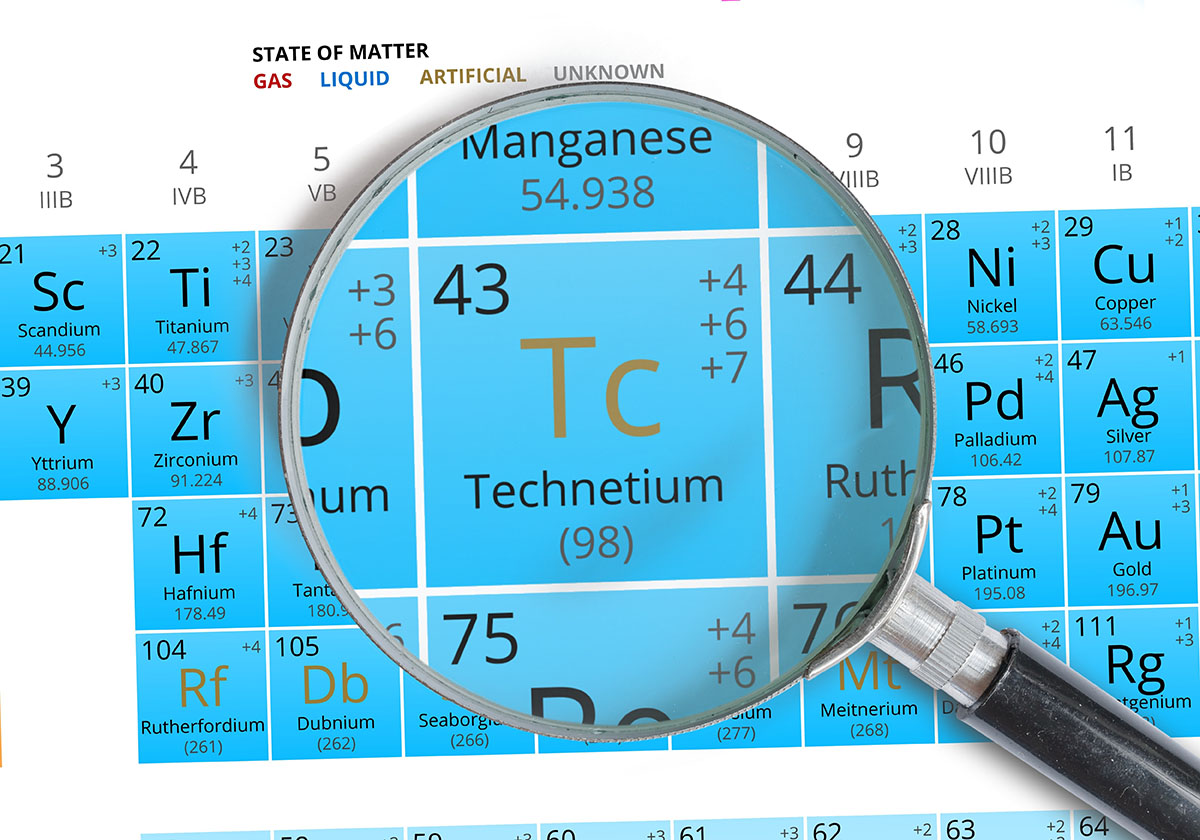
technetium
Definition
Technetium is a chemical element with the symbol Tc and atomic number 43. It is a silvery-grey metal that is radioactive.
Technetium is not found in nature. It is created artificially by bombarding molybdenum with neutrons.
Technetium is used in a variety of applications, including:
- Medical imaging
- Cancer treatment
- Industrial applications
How can the word be used?
Technetium is used in a variety of applications, including medical imaging, cancer treatment, and industrial radiography.

Different forms of the word
Noun:
a chemical element with the symbol Tc and atomic number 43. It is a radioactive metal that is not found in nature, but is produced artificially.
Adjective:
relating to or containing technetium.
Etymology
The word "technetium" comes from the Greek word "τεχνητός", which means "artificial".
The first recorded use of the word "technetium" was in 1937, by the Italian-American physicist Emilio Segrè. He and his colleague Carlo Perrier discovered technetium in the residue of uranium fission products.
The word "technetium" is a New Latin word, which means that it was created by scientists. It is derived from the Greek word "τεχνητός", which means "artificial". This is because technetium was the first element to be artificially produced.
Here are some other etymological details about the word "technetium":
The Greek word "τεχνητός" is derived from the word "τέχνη", which means "art" or "skill".
The name "technetium" is a reminder of the fact that the element was created by human ingenuity.
Question
What is technetium used for?